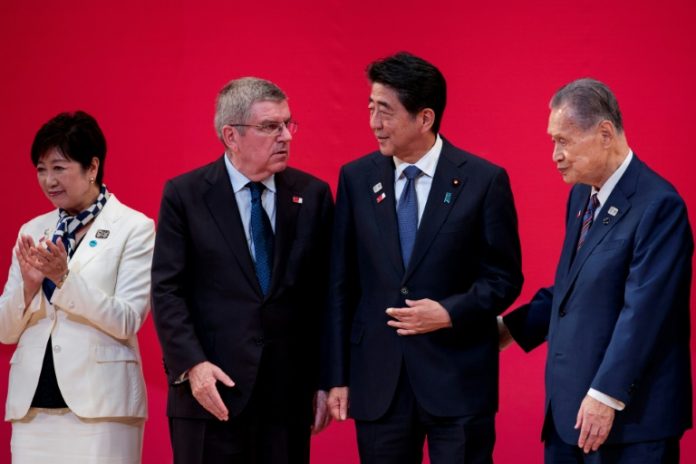The 2020 Tokyo Olympics have been postponed to no later than the summer of 2021 because of the coronavirus pandemic sweeping the globe, the International Olympic Committee announced Tuesday.
The Games were scheduled for July 24-August 9, but after telephone discussions between IOC president Thomas Bach and Japanese Prime Minister Shinzo Abe, a historic joint decision was taken for the first postponement of an Olympics in peacetime.
Abe said Bach was in “100 percent agreement” when Japan asked the IOC to push back the Games.
In a joint statement, the pair said that based on current World Health Organization information, the Tokyo Games “must be rescheduled to a date beyond 2020 but not later than summer 2021, to safeguard the health of the athletes, everybody involved in the Olympic Games and the international community”.
“The leaders agreed that the Olympic Games in Tokyo could stand as a beacon of hope to the world during these troubled times and that the Olympic flame could become the light at the end of the tunnel in which the world finds itself at present.
“Therefore, it was agreed that the Olympic flame will stay in Japan. It was also agreed that the Games will keep the name Olympic and Paralympic Games Tokyo 2020,” the statement concluded.
The decision will be a devastating blow for the city of Tokyo, which had won widespread praise for its organisation, with venues finished well ahead of time and tickets massively oversubscribed.
– Highest-profile postponement –
The Olympics, which has experienced boycotts, terrorist attacks and protests, but has been held every four years since 1948, would be the highest-profile event affected by the virus that has killed thousands and closed sports competitions worldwide.
The IOC has come under increasing pressure in recent days to postpone the Games, scheduled to start on July 24, with 1.7 billion people across the planet in lockdown to prevent the further spread of COVID-19.
Training has become impossible for many athletes and exposes them to the risk of contracting or spreading the disease. Competitions and qualifiers have been scrapped, while international travel is severely limited.

On Sunday, the IOC had initially given itself a deadline of four weeks to come up with a proposal to postpone the Games, a Herculean task that touches on every aspect of Tokyo 2020 planning from venues to security to ticketing.
But after Canada and Australia withdrew their teams and the powerful US Olympic Committee and World Athletics also joined the chorus calling for a postponement, the writing was on the wall.
Tokyo was spending some $12.6 billion to host the Games, according to its latest budget, and experts believe a postponement could cost it some $6 billion in the short-term before recouping it when they eventually go ahead.
It will also be a bitter blow to sponsors and major broadcasters who rely on the four-yearly extravaganza for critical advertising revenue.
It is not the first time Tokyo has seen unscheduled changes to the Games — it was due to be the first Asian country to host the Olympics in 1940 before pulling out due to international pressure over its war with China.
– Unparallelled complexity –
The IOC came under fire for taking so long to make its decision after other major events such as the European Football Championships already announced postponements.

But Tokyo 2020 organisers had pointed to the unparalleled complexity – not to mention cost — of shifting the Games. It is not even clear venues will be available and tens of thousands of hotel rooms will need to be cancelled and rebooked.
“It is mind-bogglingly complex to make a sudden change after seven years of preparation for the biggest sporting event in the world,” Michael Payne, the IOC’s former head of marketing, told media.
But Tokyo 2020 organisers had pointed to the unparalleled complexity — not to mention cost — of shifting the Games. It is not even clear venues will be available and tens of thousands of hotel rooms will need to be cancelled and rebooked.

“It is mind-bogglingly complex to make a sudden change after seven years of preparation for the biggest sporting event in the world,” Michael Payne, the IOC’s former head of marketing, told reporters
Squeezing in the 16-day Games into what will already be a hugely crowded 2021 calendar is another major headache, with arguably the two biggest sports, swimming and athletics, due to hold their world championships that summer.
However, World Athletics has already said it was prepared to shift its world championships, scheduled for August 6-15 next year in Oregon, to accommodate a rescheduled Games.
















